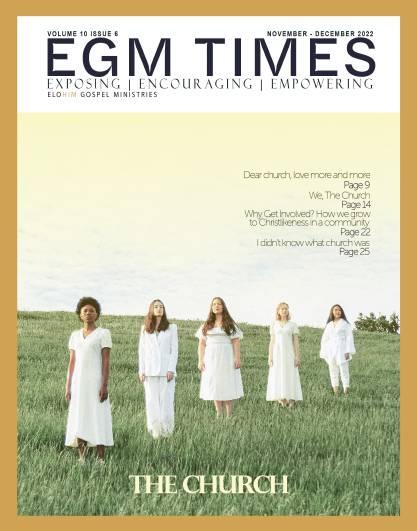
3 minute read
Contemplative Prayer
I must admit when I first saw the word “contemplative” in front of prayer a couple of years ago while flipping through a book, I casually continued on to the next page despite my feeling both confused and intimidated in response. The word itself didn’t strike me as very accessible to the spiritual limp. It sounded like a word designed for those with deep faith and tons of free time. Of course, my lack of knowledge regarding what contemplative prayer actually looks like had a great deal to do with my initial judgment, but prayer has always been something of a complicated discipline for me anyways. For many years the very thing that was designed to keep me connected to God so often left me feeling anxious and hyper-focused on getting it “right.” Relative to it edifying me and others, it was usually a practice that involved a lot of words I had to work to muster up all on my own as if I was set to drawing on a blank slate with the intention of giving it to God for scrutiny and review when it was all said and done. Though there has been much over the years that has shaped my understanding of prayer, it wasn’t until months later that the intimidation began to take on a different form-one of curiosity. Little did I know contemplative prayer was actually something that would help shift my prayer life.
I suppose contemplative prayer became of more interest to me after my first encounter with the word because it functions in much the same way as writing prompts do. As a writer, I’m all for writing prompts. They are set before you as inspiration, a starting place, and an invitation to create space for something different and surprising to unfold. So it is with contemplative prayer. You begin by selecting a word or sentence that is set before you. Some consider the word or sentence chosen to be sacred, representing your intention to be present. Once the word or sentence has been introduced you speak it and recite it over and over again, all while settling deeply into it. Paradoxically, the thought of approaching prayer this way reinforced my sense of choice and calmed the whirlwinds of anxiety that would often swirl within me when in prayer. I could more readily focus on getting to know God, and I knew I had to give it a try.
Advertisement
What was my experience like, you ask? Well, one particular morning comes to mind. There was an unusual quiet that filled my home that morning. With the sun painting its greeting across the darkened, worn edges of my coffee table, I began to repeat: “O God, make speed to save me. O Lord, make haste to help me. ” After a substantial amount of time passed, God began to illuminate the process for me. What began with spoken word became a song.
That song became a familiar melody and that familiar melody became care and concern and compassion for others. Care and concern and compassion for others became the naming of Truth and the naming of Truth became centering and grounding. Feeling both centered and grounded, I noticed I felt safe in the presence of God and that felt sense of safety nourished a more genuine connection in the moment. That connection seemed to me the very essence of God’s Love. For me, it was a prayer that flowed from a more natural and more deeply seated place. The pressure was off, in a sense. The invitation wasn’t fraught with the temptation to perform or figure out what God might want me to say. It was an invitation to come as I was, listen, and move in tandem with what the Spirit was doing. It was an invitation to "Be still and know that I am God" (Psalm 46:10) and “…wait patiently for Him" (Psalm 37:7).
As I’ve come to engage in contemplative prayer more, I cannot help but think of the notion of presence in a similar light. The word presence always sounds good in theory, doesn’t it? In fact, we use the word a lot, even in Christian circles as we ask God to show us His presence.
Yet when we use the word are we really aware of what we are saying? It’s a state of being most of us would not shy away from admitting we value, yet in reality, it can be anything but comfortable and easy to inhabit. It’s a place of acknowledged vulnerability because it’s a place where we can let our guard down, and become fully exposed, while also remaining fully open. Presence doesn’t just ask us to sit wholly in the good thing but also invites us to step into the painful things as well. Presence, like contemplative prayer, bids us to move evermore closely to the place where God lives in us. A willingness to step into the moment, into the present, and create space is an essential part of contemplative prayer and one I hope to continue to nurture as time wears on. Will you join me?
"For those who enter God's rest also cease from their labors as God did from his. Let us, therefore, make every effort to enter that rest." (Hebrews 4:10-11)







